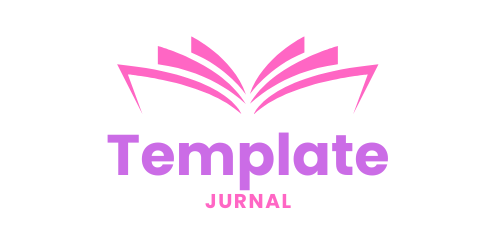ANALISIS KEGIATAN EKONOMI ATAS HAK CIPTA DALAM EKONOMI ISLAM
DOI:
https://doi.org/10.24256/joins.v3i1.1443Abstract
Abstract: The existence of sharia provisions and protection of the Law on copyright provides adequate legal protection, of course so that the ability of intellectual rights, creativity, or community expertise can grow in line with a fair business competition climate. Copyright can be justified by Islamic Economics in terms of distributive justice. Consideration of fairness is a strong reason to support copyright. Fair that the inventor gets a reward for providing services to the community. Conversely, it would be unfair if others become "stowaways" at the expense of others who have tried to do research and new discoveries. Incentives also need to be given to the inventor because without him the development of art, science and technology would not be possible. Because the freedom that an inventor has is invaluable capital for the progress of society. Therefore, protection for what he found was appropriate given by the community.
Keywords: Copyright, Islamic Economics
Â
Abstrak: Adanya ketentuan syariah dan perlindungan Undang-undang tentang hak cipta memberikan perlindungan hukum yang memadai, tentunya supaya kemampuan hak intelektual, kreativitas, atau keahlian masyarakat dapat tumbuh sejalan dengan iklim persaingan usaha yang sehat. Hak cipta dapat dibenarkan oleh Ekonomi Islam dari segi keadilan distributif. Pertimbangan mengenai keadilan merupakan alasan yang kuat untuk mendukung hak cipta. Adil bahwa penemu mendapatkan reward karena memberikan layanan bagi masyarakat. Sebaliknya, akan menjadi tidak adil jika orang lain menjadi “penumpang gelap†atas biaya orang lain yang telah berusaha melakukan penelitian dan penemuan baru. Insentif juga perlu diberikan kepada penemu karena tanpa dia tidak mungkin terjadi perkembangan seni, ilmu dan teknologi. Karena kebebasan yang dimiliki seorang penemu merupakan modal yang yang tak ternilai bagi kemajuan masyarakat. Oleh karena itu, perlindungan atas apa yang ia temukan pantas diberikan oleh masyarakat.
Kata kunci: Hak Cipta, Ekonomi Islam
DAFTAR PUSTAKA
al-Duraini, Fathi. Haqq al-Ibtikar fi al-Fiqh al-Islami al-Muqaran, Bairut: Mu`assasah al-Risalah, 1984
al-Zuhaili, Wahbah. al-Fiqh al-Islami wa Adilllatuhu, juz 4, Bairut: Dar al-Fikr al-Mu`ashir, 1998
Badrulzaman, Mariam Darus. Mencari Sistem Hukum Benda Nasional, Bandung: BPHN-Alumni, 1983
Damian, Eddy. Hukum Hak Cipta, Bandung: Penerbit Alumni, 2002
Dewantara, Ki Hajar. Kebudayaan, (Jogjakarta: Majelis Luhur Persatuan Taman Siswa, 1967
Fauzan, Ahmad. Perlindungan Hukum Hak Kekayaan Intelektual, Bandung, CV Yama Widya, 2004
Muhammad, Abdul Kadir. Kajian Hukum Ekonomi Hak Kekayaan Intelektual, Bandung: PT. Citra Bakti, 2001
Pusat Pembinaan dan Pengembangan Bahasa, Kamus Besar Bahasa Indonesia, Jakarta: Balai Pustaka, 1996
Pusat Pengkajian dan Pengembangan Ekonomi Islam (P3EI), Ekonomi Islam, Jakarta: PT. Raja Grafindo Persada, 2008
R. Tjitrosudibio, dan R. Subekti Kitab Undang-undang Hukum Perdata, Jakarta: Pradnya Paramita, 1982
Simatupang, Richard Burton. Aspek Hukum dalam Bisnis, Jakarta: PT. Rineka Cipta, 2003
Sofwan, Sri Soedawi dan Masjchoen. Hukum Perdata: Hukum Benda, Yogyakarta: Liberty, 1981
Subekti, Pokok-Pokok Perdata, Jakarta: PT. Intermasa, 1980
Tunggal, Hadi Setia. Undang-Undang Hak Cipta (UU No. 19 Tahun 2002), Jakarta: Harvindo, 2003
Undang-Undang Hak Cipta No. 19 Tahun 2002
Â
Downloads
Additional Files
Published
Issue
Section
Citation Check
License
Authors who wish to publish and disseminate their papers with the Journal Of Institution And Sharia Finance shall agree to the publishing rights set by Journal Of Institution And Sharia Finance Authors understand that they shall assign publication right to as part of the process upon acceptance for publication. Authors agreed that they will transfer certain copyrights to Journal Of Institution And Sharia Finance. Consecutively, authors still retain some rights to use and share their own published articles without written permission from Journal Of Institution And Sharia Finance.
Authors granted Journal Of Institution And Sharia Finance. these following rights; (1) the right to publish and provide the manuscripts in all forms and media for the purpose of publication and dissemination, (2) the authority to enforce the rights in the manuscript, for example in the case of plagiarism or in copyright infringement.
Journal Of Institution And Sharia Finance will follow COPE’s Code of Conduct and Best Practice Guidelines for Journal Editors to protect the research results and takes allegations of any infringements, plagiarisms, ethical issues, and frauds should those issues arise. The manuscript is attributed as authors' work, and are properly identified.



